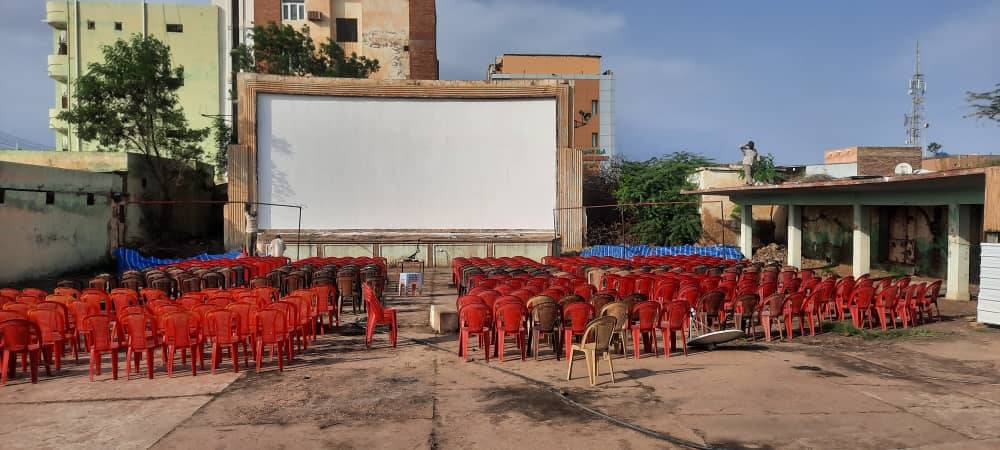
Cultural Flourishing Amid War in Kosti
Kosti - Moatinoon
Since the outbreak of the Khartoum War between the army and the Rapid Support Forces in mid-April of the past year, a significant number of residents of Khartoum State have migrated to neighboring states such as Al-Jazirah, Sennar, Nile River, Northern, and White Nile. The city of Kosti, located 360 km south of Khartoum, has received a large number of these displaced citizens.
In mid-June of the previous year, the competitions of the 8th Free Theater Festival were held, hosted by the Red Sea for Culture and Arts Organization in Kosti city. The event witnessed participation from various theater groups and collectives from different cities across Sudan. The festival lasted for ten days and honored several theater and cultural figures in the city.
On August 8th of the current year, cinema enthusiasts and city aficionados brought City Cinema back to life after its closure for 27 years.
The history of Kosti City Cinema dates back to the early 1950s. In the 1980s, the Muslim Brotherhood labeled it and its audience as deviant, leading to the closure of the cinema. The reason given was that arts and singing were deemed prohibited. Since then, a hostile atmosphere prevailed until its closure in the early years of the Islamist regimes rise to power through a military coup in 1989. This was part of an anti-art wave across Sudan that saw the closure of theaters and cinemas.
With the efforts of civic individuals led by Youssef Issa Abdullah, initiatives began to revitalize Kosti Public Cultural Library within the Kosti Social and Cultural Club in the Al-Marabie neighborhood, which was founded in 1927 by a group of youth. The library has a longstanding history of providing students and local creative minds with the latest releases from local and regional publishers over past decades. This has been accompanied by cultural and artistic activities, which were particularly vibrant during the 1970s and 1980s.



